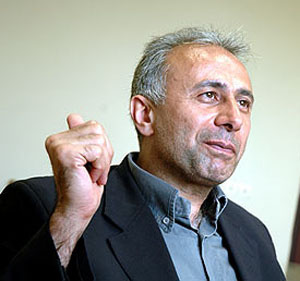United Against Iran; Multilaterally?
Can US bring China on board? By Ebrahim Mottaqi

During his presidency, Obama has followed a ‘dual-track policy’ against Iran. So while in 2009 he sent Iranians a message of congratulation for the Persian New Year, the American president never stopped his efforts to contain Iran and take away from the country chances to activate its strategic potentials.
Things don’t seem to have change in the new Persian year and it seems the dual-track policy should be accepted as the US strategic behavioral pattern in dealing with Iran. This is a strategy with two complementary faces whose interaction determines the final decision made by the American diplomacy.
The first face concerns the overtly demonstrated policies of America. It has a cooperative, friendly frontal and stresses diplomatic behavior. Rhetoric of Obama and other US presidents during the past thirty years has always had a non-hostile nature.
The other aspect however is based on a policy of force and pressure to contain those international actors regarded as a challenge to US security strategies. It is following this track that Americans discuss options such as military action, sanctions and multilateral diplomacy. The pattern Obama is following seeks to discard both direct and indirect military measures nevertheless.
Meanwhile, Obama’s remarks and actual policies have shown that in his belief, Iran is not a serious security threat for America in the current situation, although it needs to be fettered via multilateral cooperation as it is a challenge to America’s international policies and objectives.
This approach has witnessed the resistance of Russia and China, traditional rivals of the United States. China still tries to act as a pressure-breaker when US tries to exert intensive force on Iran; and keep in mind that the tensions between Beijing and Washington within the last few months over Taiwan and Tibet make China a halfhearted partner for Americans. Rise of Democrats has normally caused problems in the United States’ ties to countries such as China since democracy, human rights, rights of ethnicities and political opposition groups turn into issues for the American administration. It shouldn’t come as a surprise if Chinese don’t appear to be as cooperative as the Americans want them at the current circumstances.
However, China may still impede United States, Britain and Germany as they decide to take measures against Iran, but it will not jeopardize US strategic policies.
In 2007 and 2008, United States managed to pass consensual resolutions against Iran’s nuclear program in the UN Security Council, with support from both permanent and non-permanent members of the council. Current composition of the council makes it a difficult task for the Americans to pass another resolution based on consensus, but they could be hopeful to bring Russia and China onboard via a multilateral policy.
Things don’t seem to have change in the new Persian year and it seems the dual-track policy should be accepted as the US strategic behavioral pattern in dealing with Iran. This is a strategy with two complementary faces whose interaction determines the final decision made by the American diplomacy.
The first face concerns the overtly demonstrated policies of America. It has a cooperative, friendly frontal and stresses diplomatic behavior. Rhetoric of Obama and other US presidents during the past thirty years has always had a non-hostile nature.
The other aspect however is based on a policy of force and pressure to contain those international actors regarded as a challenge to US security strategies. It is following this track that Americans discuss options such as military action, sanctions and multilateral diplomacy. The pattern Obama is following seeks to discard both direct and indirect military measures nevertheless.
Meanwhile, Obama’s remarks and actual policies have shown that in his belief, Iran is not a serious security threat for America in the current situation, although it needs to be fettered via multilateral cooperation as it is a challenge to America’s international policies and objectives.
This approach has witnessed the resistance of Russia and China, traditional rivals of the United States. China still tries to act as a pressure-breaker when US tries to exert intensive force on Iran; and keep in mind that the tensions between Beijing and Washington within the last few months over Taiwan and Tibet make China a halfhearted partner for Americans. Rise of Democrats has normally caused problems in the United States’ ties to countries such as China since democracy, human rights, rights of ethnicities and political opposition groups turn into issues for the American administration. It shouldn’t come as a surprise if Chinese don’t appear to be as cooperative as the Americans want them at the current circumstances.
However, China may still impede United States, Britain and Germany as they decide to take measures against Iran, but it will not jeopardize US strategic policies.
In 2007 and 2008, United States managed to pass consensual resolutions against Iran’s nuclear program in the UN Security Council, with support from both permanent and non-permanent members of the council. Current composition of the council makes it a difficult task for the Americans to pass another resolution based on consensus, but they could be hopeful to bring Russia and China onboard via a multilateral policy.

